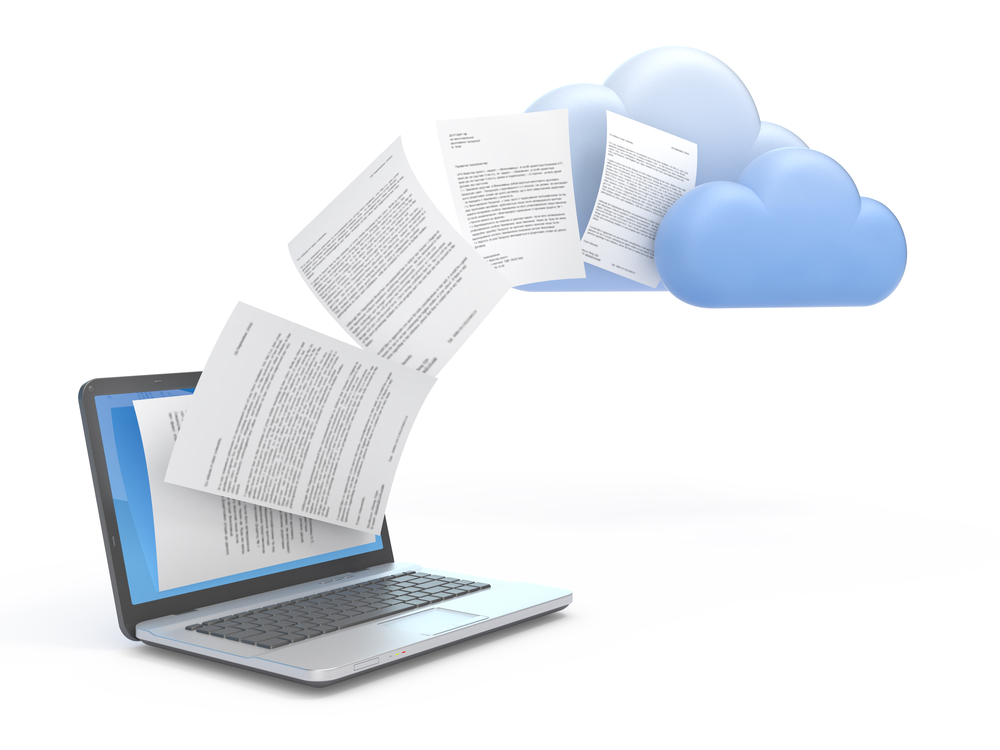
Anonymous Tor Cloud project closes down
The Tor browser is used by many to stay anonymous online -- and it's something that has been embraced by the likes of WikiLeaks as a way to safely gather information whilst hopefully avoiding the surveillance of the NSA. One lesser known project from the same stables is the Tor Cloud service, and Tor has announced that it is closing down.
Based on the Amazon EC2 cloud computing platform, Tor Cloud provided a way to share computing resources and allow faster uncensored access to the internet. However, the project is plagued with "at least one major bug ... that makes it completely dysfunctional" and after failing to find anyone to undertake the work, the decision was taken to shutter Tor Cloud. This does not mean that Tor itself is dead -- far from it -- and developers are being encouraged to create their own forked versions of Tor Cloud.

PlayStation Now subscriptions come to PS3 -- Vita to follow
Sony is bringing its PlayStation Now game streaming feature to PS3 users. It's something that has been available to gamers with a PlayStation 4 since the beginning of the year, but from May 12, it's something that owners of older consoles will be able to take advantage of.
PlayStation Now allows for the streaming of more than 100 PS3 games, and a 7-day free trial is available for anyone who wants to test the waters. With cloud-based game saves it's possible to start a game on one device, and finish it on another, and Sony says there's more to come.

My definition of 'modern' computing
Late yesterday I posted my review of Chromebook Pixel LS, which Google released in early March. The write-up is purposely rah-rah to impose the importance of embracing contextual cloud computing and to shakeup preconceptions about Macs being the tools of the creative elite. I also call "dumb" developers who may receive free Pixels during Google I/O later this month only to then sell them online.
One reader comment, from SmallSherm caught my attention, for accusing me of calling him (or her) stupid and for insulting other readers. After writing my response, I wondered how few people would ever see the interaction, which I regard as being quite valuable. So in the interest of fostering further discussion, I present our two comments for your Tuesday thought train.

Spanning launches automated protection for Office 365
The rise of SaaS applications like Microsoft Office 365 has brought benefits in terms of collaboration and efficiency. However, switching to a cloud-based service doesn't remove the need for backups.
For example, Office 365 doesn't protect against accidental deletion of files and a deleted mailbox is only available for 30 days after which it's not recoverable. These problems are addressed by a new product from backup specialist Spanning Cloud Apps.

Why backups are shifting to the cloud
A backup and recovery solution is essential for enterprises if they're to safeguard their critical data. Yet whilst they may take care of their servers, according to a new infographic from private cloud company SingleHop they're less concerned about endpoint data.
Only 50 percent of companies have endpoint backups in place and this leads 16 percent of end users to do their own backups using a non-approved solution.

Incentive launches Dropbox integration for secure file collaboration
Businesses often use different applications to create, store and share content. Whilst most enterprise collaboration tools allow for some sort of file sharing it can involve additional time and effort importing data.
The Incentive platform is now making sharing information easier by adding one-click integration with Dropbox cloud storage.

Smart meeting service helps bring business people together
As the workforce becomes increasingly mobile, setting up meetings and making sure time spent in them is used effectively becomes more and more difficult.
Israeli company Meeter is launching a 'smart meeting' solution that doesn't only automate the scheduling of meetings, but also provides a standardized framework for managing what happens during them and collects documentation on what happened.

Free service combines cloud data integration and backup
With the wide choice of cloud services available it can be all too easy for business data to become fragmented with different parts of the organization using different services.
Database connectivity solutions provider Devart has announced the release of Skyvia 3.0, a free online service that can integrate cloud data from different sources and in this latest version provide cloud backup too.

AWS shows cloud is NOT a high-margin business
Last week Amazon.com was the first of the large cloud service companies other than Rackspace to finally break out revenue and expenses for its cloud operation. The market was cheered by news that Amazon Web Services (AWS) last quarter made an operating profit of $265 million with an operating profit margin of 19.6 percent. AWS, which many thought was running at break-even or possibly at a loss, turns out to be for Amazon a $5 billion business generating a third of the company’s total profits. That’s good, right? Not if it establishes a benchmark for typical-to-good cloud service provider performance. In fact it suggests that some companies -- IBM especially -- are going to have a very difficult time finding success in the cloud.
First let’s look at the Amazon numbers and define a couple terms. The company announced total AWS sales, operating profit, and operating profit margins for the last four quarters. Sales are, well, sales, while operating profit is supposed to be sales minus all expenses except interest and taxes (called EBIT -- Earnings Before Interest and Taxes). Amazon does pay interest on debt, though it pays very little in taxes. Since tax rates, especially, vary a lot from country to country, EBIT is used to help normalize operating results for comparing one multinational business with another.

The Sun newspaper launches anonymous Tor-based WikiLeaks-style SecureDrop
The likes of Julian Assange's WikiLeaks have set the standard for blowing the lid on huge stories based on tips from anonymous sources. Whistle-blowers such as Edward Snowden have brought to public attention stories which would otherwise have been kept hidden from the public, and it has been with the help of newspapers such as the Guardian that this information has been disseminated around the world.
Other newspapers are keen to ride on the coattails of those blazing a trail in the world of investigative journalism, and the latest to join the party is The Sun. Today, Murdoch-owned News Corp's newspaper and website launches SecureDrop -- a way for whistle-blowers to anonymously leave tip-offs that can be further investigated.

Tidal isn't a tsunami (but it can be)
Lossless leader Tidal has a problem. Last month's splashy relaunch let critics control the narrative, defining the streaming service as a tool for pampering the bank accounts of already successful musicians. But Tidal is something else: Affordable HiFi streaming for the listening elite—those people who want to enjoy music the way it was engineered, produced. The streamer should be the coolest thing, but the Jay Z ownership team fraked up the marketing messaging. Problem is fixable, but correction requires aggressive advertising, promotional pricing, and extraordinary exclusives.
For more than three weeks, I have listened to nothing but Tidal, and the service should challenge everyone signing up for the 30-day trial to do likewise. There is no other way for the majority of people to appreciate the aural benefits. The majority of potential subscribers are too accustomed to the muddy, mushy, overly-bassy sound of compressed, low-fidelity AAC or MP3 files. The brain and ears need to be freed from the habitual crappy sound to which they're accustomed. iTunes is a prison. Spotify is another. Tidal will liberate you. But you must want freedom to attain it.

New platform gives one-person developers the tools for faster app creation
Businesses and development teams are under ever more pressure to produce new apps to meet tight deadlines, this can lead to the creation of apps that fail to meet user requirements.
Platform as a service company WaveMaker is looking to streamline the development process for enterprise developers and non-programming users with the announcement of WaveMaker Desktop, a free, open source, browser-based, single-developer version of its recent WaveMaker Studio 7 release.

Funding for SaaS businesses grows by 70 percent
Software as a Service (SaaS) is one of the biggest technology growth areas at the moment. That's reflected in the amounts of capital being pumped into the sector by investors.
A new SaaS Trends Report by Tibco Analytics and venture capital tracker CB Insights shows that funding for SaaS companies was $11.7 billion in 2014, up 70 percent over the past year. SaaS funding has tripled since 2011.

IBM brings threat analytics to the cloud
Last week we reported on IBM's decision to open up its threat intelligence data in X-Force Exchange to help fend off cyber attacks.
Today the company is making its threat intelligence system QRadar available as a cloud service, giving companies the ability to quickly prioritize real threats and free up critical resources to fight cyber attacks.

New cloud agent brings enterprises greater security and asset control
Increased use of the cloud and hybrid systems is bringing new challenges for businesses needing to ensure their systems are secure and compliant.
A new Cloud Agent Platform (CAP) from cloud security specialist Qualys provides organizations with a flexible solution to assess the security and compliance of their IT assets in real time, whether they're on-site, cloud-based or mobile endpoints.
